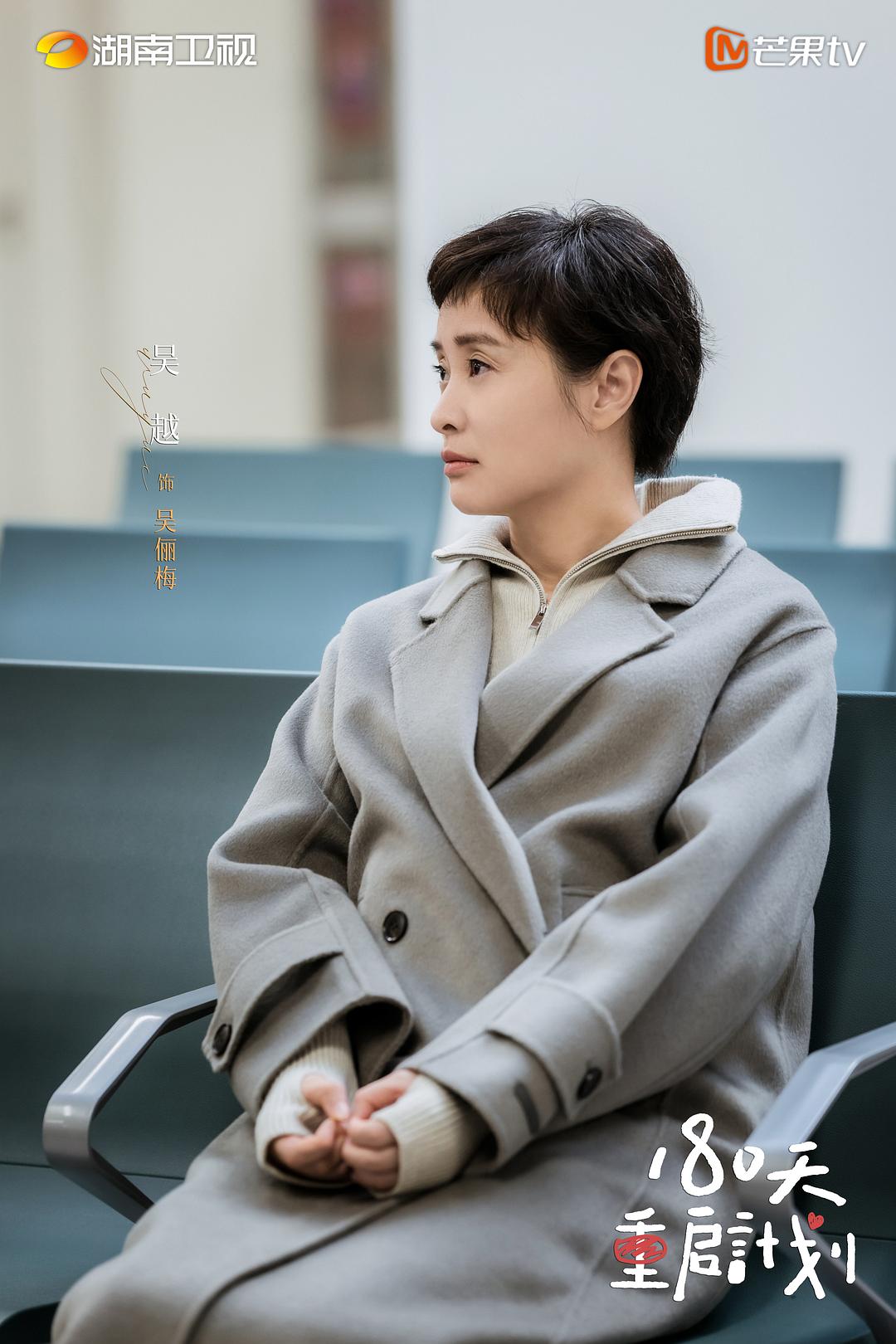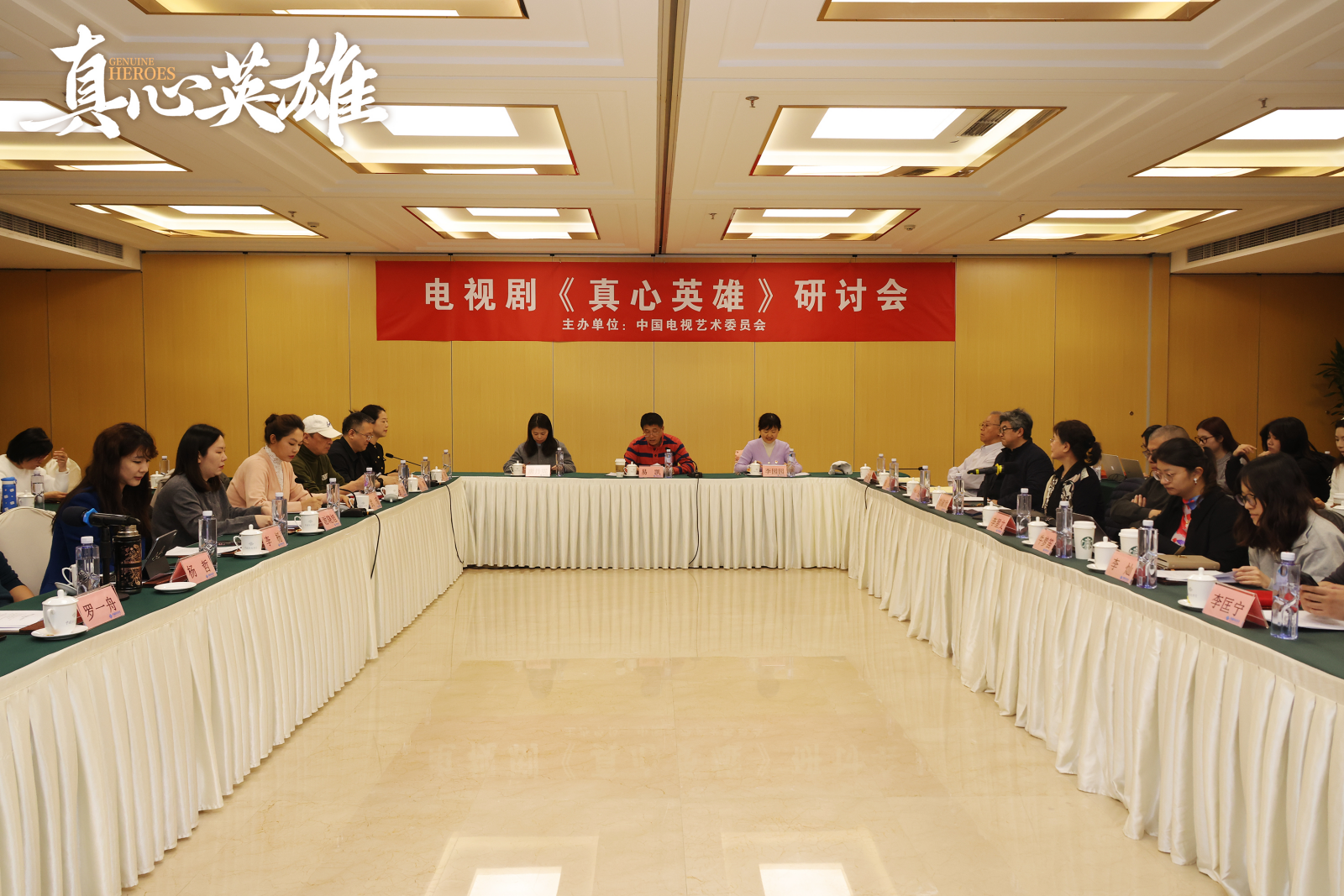
The 21-episode series "Springtime" would have spanned the May Day holiday if it had been broadcast according to its original schedule. The holiday was an excellent opportunity for the popularity and reputation of this high-quality series to continue to ferment. However, as soon as the holiday began, the platform was busy opening advance screenings, which could earn some money, but the normal promotion and distribution rhythm of the series was also disrupted. According to Yunhe's effective playback data, the series' original rating of barely S+ dropped directly to S after the advance screenings.

Poster of Spring for Lovers
I feel bad for "Springtime Lovers". Even though it still has some imperfections, it is indeed one of the few domestic idol dramas that embodies a "modern" quality in both form and content.
The form is “modern” because it is short. Urban romance dramas on the market often have more than 35 episodes, but 21 episodes is just right for “Spring Lovers”.
Viewers of Japanese and Korean idol dramas, or idol dramas from Taiwan, often wonder: Why do idol dramas in China often run for 30 or 40 episodes, when the love story can be told in 8 to 16 episodes? This is related to the broadcasting mode of the TV stations and the viewing habits of the audience, but in the final analysis, many idol dramas in China are "watered down" just to increase the number of episodes and raise the price of the series.
If we follow the virtues of other idol dramas, there are too many places in "Spring Lovers" that can be "watered down". For example, the story between the male protagonist Chen Maidong (played by Li Xian) and his parents, and the entanglement between the female protagonist Zhuang Jie (played by Zhou Yutong) and her ex-boyfriend are all subplots that watered-down dramas are keen to expand. "Spring Lovers" only touches on the details, and does not add unnecessary details if it can be briefly mentioned.
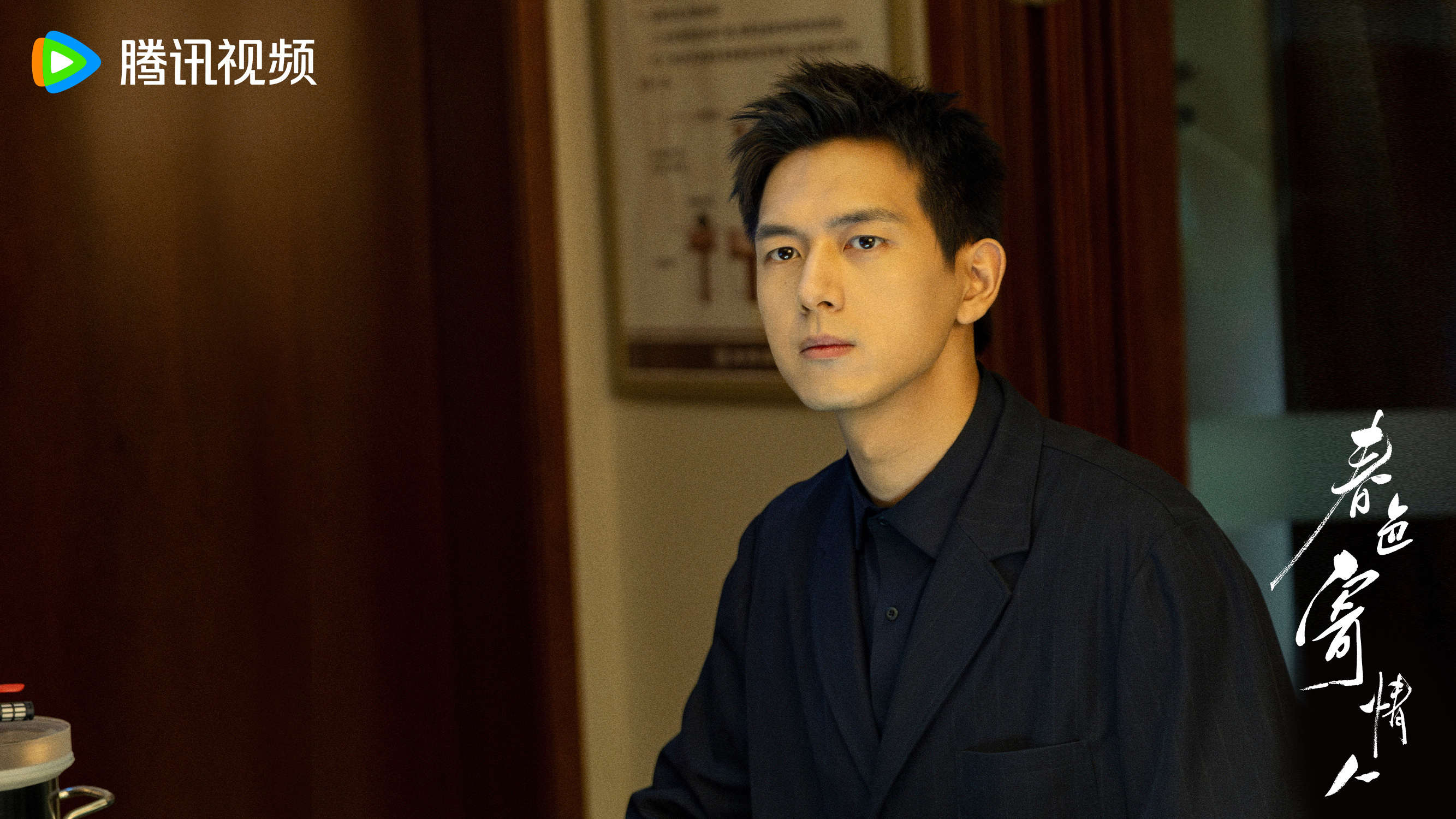
Chen Maidong (played by Li Xian)
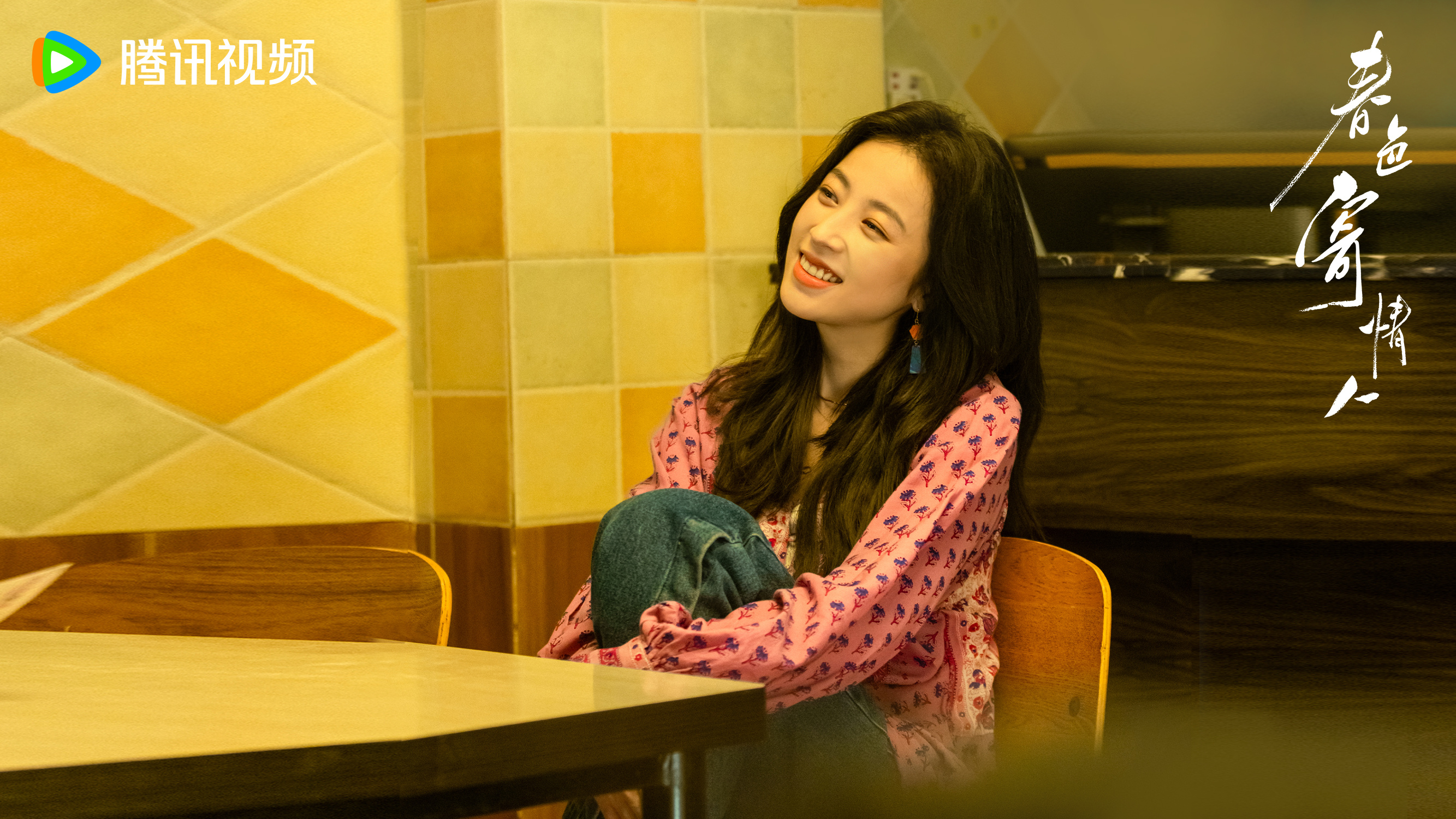
Zhuang Jie (played by Zhou Yutong)
Another way domestic idol dramas are "watered down" is to create all kinds of excellent characters, deliberately delaying emotional conflicts that could be resolved quickly, and lengthening the story line through a cycle of conflict, resolution, conflict again, and resolution again.
For example, if Chen Maidong's grandmother (played by Wan Fang) is a "super grandmother", she would oppose her grandson's relationship with Zhuang Jie because of her disability. Fortunately, "Spring Lovers" did not do this. After learning that Zhuang Jie was disabled, Grandma Chen was a little shocked, but after calming down, she immediately "warned" her grandson that "no one has the right to discriminate against disabled people."
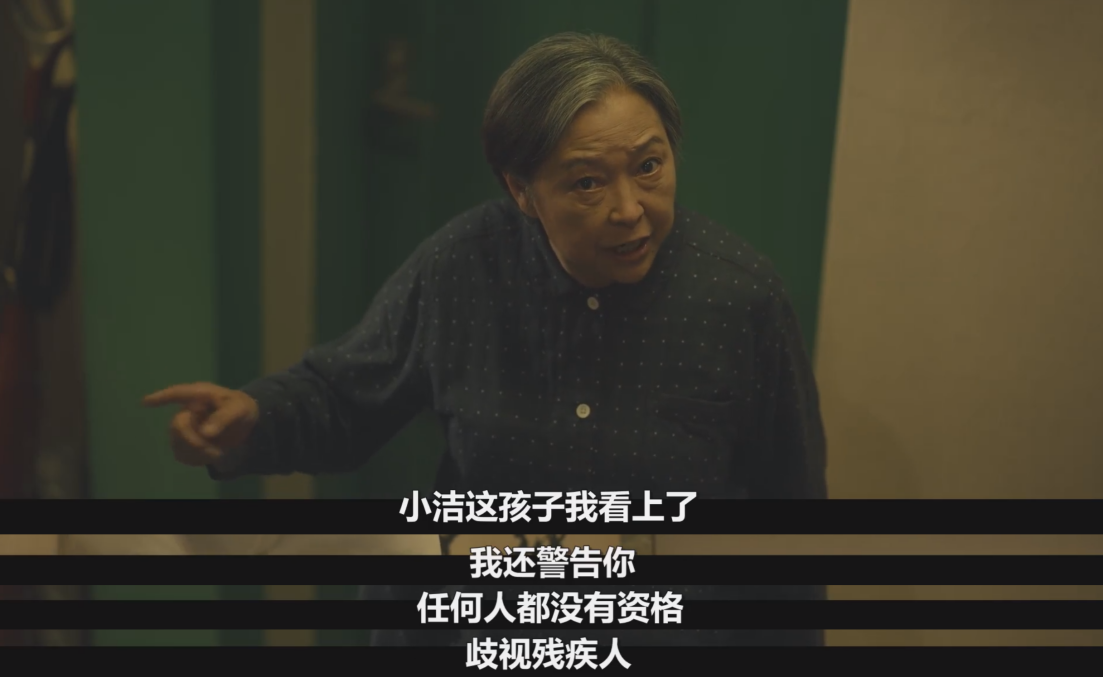
Grandma Chen (played by Wan Fang) is actually very cute
Assuming that Zhuang Jie's mother Liao Tao (Liu Lin) is a "superb mother", she may have developed an irresistible desire to control her children because of the accidental deaths of her first and second husbands. "Spring Lovers" actually marketed the term "Zhuang Jie's mother suffocated" on the hot search - what an old idea, really think this marketing method will attract the audience? In fact, the plot is not so depressing at all. Although Liao Tao once said something inappropriate because of her daughter's disability and worried that her daughter would suffer in love, the mother and daughter reconciled the next day, and the mother had "let go" in the next episode.

Liao Tao (Liu Lin) muttered to her husband's portrait. She was actually a very good mother.
The form is “modern” because the creator’s thinking is “normal”—they write about normal people and normal relationships, rather than using all kinds of clichéd and extreme methods to pile up all kinds of false and suspended dramatic conflicts.
The content of "Spring to Lovers" is also truly "modern".
There is a simple, direct and effective way to judge whether the love view of an idol drama is "modern": what is the state of the heroine's "self" in love. Does she still insist on individual independence, and still advocate that individuals should have their own dreams, careers, interests and circles of friends, rather than completely revolving around their partners? Does she still have autonomy and decision-making ability, and can make choices based on personal wishes and rational thinking? Can she continue to grow personally and realize her self-worth in love, rather than seeing love as the only motivation or end point for growth?
Although many idol dramas with contemporary backgrounds are very fashionable and trendy, their views on love are quite outdated and they fall into a serious misunderstanding - taking the loss of women's "self" in love as the basis for men's favor and as a representation of the "sweetness" of love.
For example, the "domineering president" who occupies a dominant position in the relationship, although he always "protects his wife with domineering attitude", this domineering attitude often ignores the woman's wishes and weakens her right to choose and autonomy.
For example, a "daddy-like boyfriend" who provides all-round care and protection to a woman may seem considerate, but in fact he hinders a woman's personal growth and independent development.
Another example is the romanticized portrayal of love with the idea of “love is everything” and “love comes first”. The heroine regards love as the whole of life, while other important aspects such as personal growth and career development are marginalized, and the importance of self-realization is ignored.
Therefore, the so-called "sweetness" of many idol dramas - the man protecting the woman, the man helping the woman to solve all difficulties, the man spoiling the woman into a "moron in life", or the woman giving up everything and risking her life for love, is essentially an erosion of the female "self", strengthening the dependence of women on men, devaluing the individual value of women, and hindering women's self-realization.

Stills from Springtime Lovers
In "Spring Lovers", Li Xian plays the role of "current boyfriend" who is gentle, considerate and charming, but the real focus of this idol drama is Zhuang Jie. Her choice determines the direction of her love with Chen Maidong.
Chen Maidong is a beautician in a small town, and Zhuang Jie is a professional elite in Shanghai, a medical salesperson with outstanding performance. Chen Maidong and Zhuang Jie had a beautiful love budding in middle school. After many years, Zhuang Jie returned to the small town and reunited with Chen Maidong and they met again. The flame of love burned fast and vigorously.
However, what lies before them are geographical gaps, the different choices between big cities and small towns, and the different career pursuits.
It is impossible for Chen Maidong to go to Shanghai with Zhuang Jie - in the "return to hometown drama", young people returning to their hometown to start a business is not only politically correct but also morally correct. It is Zhuang Jie who needs to make a choice - should she give up her career in Shanghai and her pursuit for love?
We selected three nodes in the relationship between Zhuang Jie and Chen Maidong to observe the changes in Zhuang Jie's "self".
Zhuang Jie met Chen Maidong for the first time after many years, and her love was stirred again. She "forced a kiss" on Chen Maidong on the train back to Shanghai. But she believed that it was impossible for her to be with Chen Maidong.
In episode 6, Zhuang Jie, who returned to Shanghai, explained the reason why it was impossible: "For a person who could only measure the world with a cane, it is a miracle that he has taken root here after traveling thousands of miles. When I walk on the streets of Shanghai, no one will pay attention to my legs. When I pass every bridge, no one will care how my father died. Here, as long as you are strong enough, everyone can live in a high-rise building and see the Oriental Pearl Tower, which is taller than the others. Sometimes I even think that everyone's cleverness and indifference are not shortcomings. Everyone is working hard to compete, get a ranking, and get rewards. The rules are very clear."
Zhuang Jie likes Shanghai's tolerance and equality, and likes Shanghai's more opportunities, clearer rules, and fairer competition. For her, Shanghai is a place to rebuild her self-confidence and realize her personal value, and she wants to take root here.
Chen Maidong's position is second only to her "self", and she can give up Chen Maidong for the sake of "self". "I really like Chen Maidong, and I always have. But I like Shanghai and myself more."

Zhuang Jie's "self" is higher than Chen Maidong's
After her stepfather passed away unexpectedly, Zhuang Jie resigned and returned home to be with her family. Her relationship with Chen Maidong had been officially confirmed. At this time, she was ready to return to Shanghai at any time.
In episode 14, Zhuang Jie lies in Chen Maidong's arms and tells him: "My profession is not as great as yours, and Shanghai is not my home, but they are both very important to me. I want to make achievements, be respected, and prove my worth, so I don't want to compromise. I don't want to marry you for five or ten years and then hate myself and you, and rely on imagination to speculate on another possibility of my life. I don't want to become someone else for you."

Zhuang Jie loves Chen Maidong, but she will not lose herself because of him
Zhuang Jie loves Chen Maidong, but she values personal independence more. She hopes to maintain the integrity of her personality and is unwilling to compromise in the relationship to the point of losing her self-pursuit. She is unwilling to let her life trajectory be preset or restricted, but hopes to explore and realize those possibilities through hard work. Even in the face of separation and unknown challenges, she is willing to take risks in order to pursue a higher level of self-realization and satisfaction.
Chen Maidong's position is second only to her "self", and she cannot give up her "self" for Chen Maidong.
After Zhuang Jie truly overcame her inner barriers, let Chen Maidong see her amputated limbs, completely accepted Chen Maidong, was engaged to him, and knew that she must have Chen Maidong in her life - "I absolutely cannot lose Chen Maidong", Zhuang Jie still decided to return to Shanghai with her bestie to start a business, and live apart from Chen Maidong.
In episode 20, Zhuang Jie, who has returned to Shanghai and successfully completed the first step of her entrepreneurial journey, and her best friend Wang Xixia (played by Wan Peng) look at the Oriental Pearl Tower outside the balcony again. Her best friend said, "Do you know how amazing your proposal this afternoon was? It was simply brilliant. I am fascinated by you. So Zhuang Jie, it's right to come back. This is your stage. Don't give up."
Zhuang Jie also said confidently: "I know. I have never thought of giving up." Zhuang Jie was just a little puzzled as to why she was trapped by a TV station. Her best friend told her, "It's not the tower's fault. Each of us is trapped by ourselves."

Oriental Pearl TV Tower is a kind of embodiment of Zhuang Jie's "self"
Zhuang Jie loves Chen Maidong so much, but she still can't let go of Shanghai, she is still "trapped by herself". "Trapped by herself" is not a derogatory term, as Zhuang Jie said to Chen Maidong before, "Only when you love yourself first can you really know how to love others." Individuals need to learn to respect, care for and understand themselves first. Only when a person has a true self and is strong and fulfilled enough in her heart can she love others with equal respect; whether it is love or marriage, one should not expect a partner to complete the "self", but should grow together and each take the responsibility of self-growth.
Chen Maidong's position is still inferior to Zhuang Jie's "self". Chen Maidong cannot trap her, only her "self" can.
This is the truly "modern" part of "Spring in the Heart" - no matter which stage the relationship between Zhuang Jie and Chen Maidong reaches, the audience can clearly and intuitively see Zhuang Jie's unshakable "self" - she wants to pursue her career and fulfill her ambitions on the big stage of Shanghai.
Her view on love is also truly "modern". Love is not about trying to change the other person, but about accepting and appreciating the other person's uniqueness; love does not have to be a reason to give up personal interests, dreams or careers, but encourages both parties to continue to pursue personal growth and development while maintaining the relationship, to support, encourage and comfort each other, and to jointly create an emotional world that is both fulfilling and free.
Of course, keeping one's own identity does not mean ignoring one's partner's feelings. Both parties should honestly share their thoughts and feelings and solve problems in the relationship in order to establish a healthy and stable relationship. This is where Zhuang Jie needs to learn.
At the end of the story, Zhuang Jie did not return to the town, and she and Chen Maidong continued to maintain a long-distance relationship. How they solved the problem of long-distance relationship, or whether their relationship will face challenges in the future, is unknown, but there is nothing to be afraid of. No matter how the relationship goes, with a strong self, life will not be lost.
